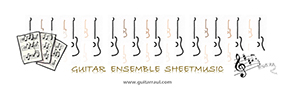Harold Gretton
The application in performance of historically informed performance practice (HIPP) is the result of its dissemination, and is of value to guitarists. HIPP is based on historical sources that discuss issues arising from performance practice. two types of historical sources of HIPP are identified: primary and secondary sources. Five issues arising from performance practice are identified. These issues are: accentuation, articulation, tempo, ornamentation and embellishment, and timbre. A six-step process of HII is identified: 1. Selecting an historical work to be interpreted; 2. Gaining knowledge of the setting of the selected work; 3. Selecting and examining primary sources that address issues arising from performance practice applicable to works by the composer of the selected work; 4. Selecting and examining secondary sources that address issues arising from performance practice applicable to works by the composer of the selected work; 5. Compiling a list of guidelines from historical information contained in primary sources, and from historical information and insights contained in secondary sources; 6. Applying the compiled guidelines within the context of the creation of an historically informed interpretation (HII).This process is applied to the interpretation of Fernando Sor’s Deuxi`eme Grande Sonate op.25 for solo guitar.
A thesis submitted for the degree of Doctor of Philosophy atThe Australian National University
Historically informed interpretation: a process in relation to Grande Sonate op.25 for solo guitar





